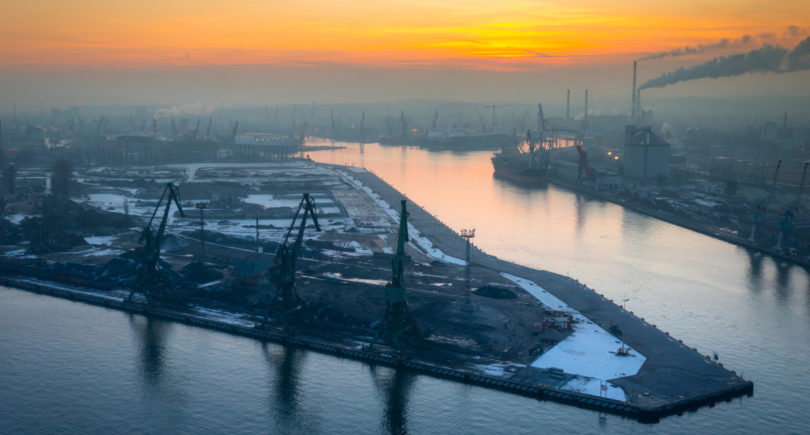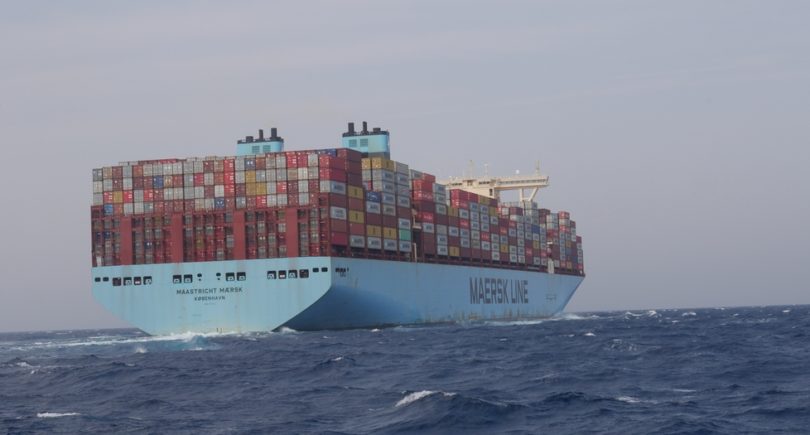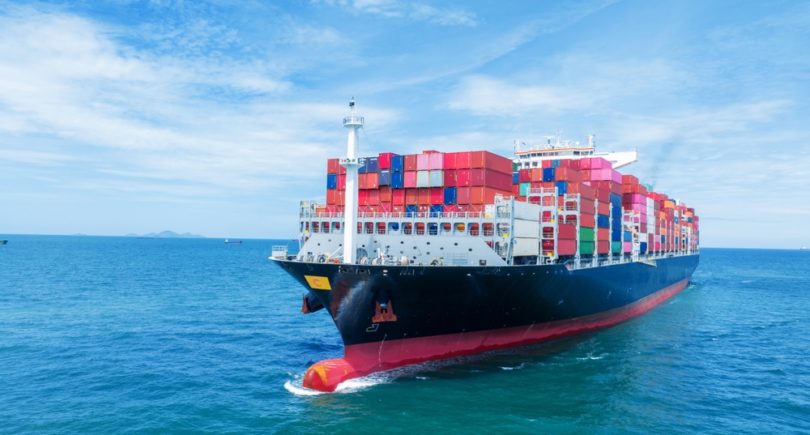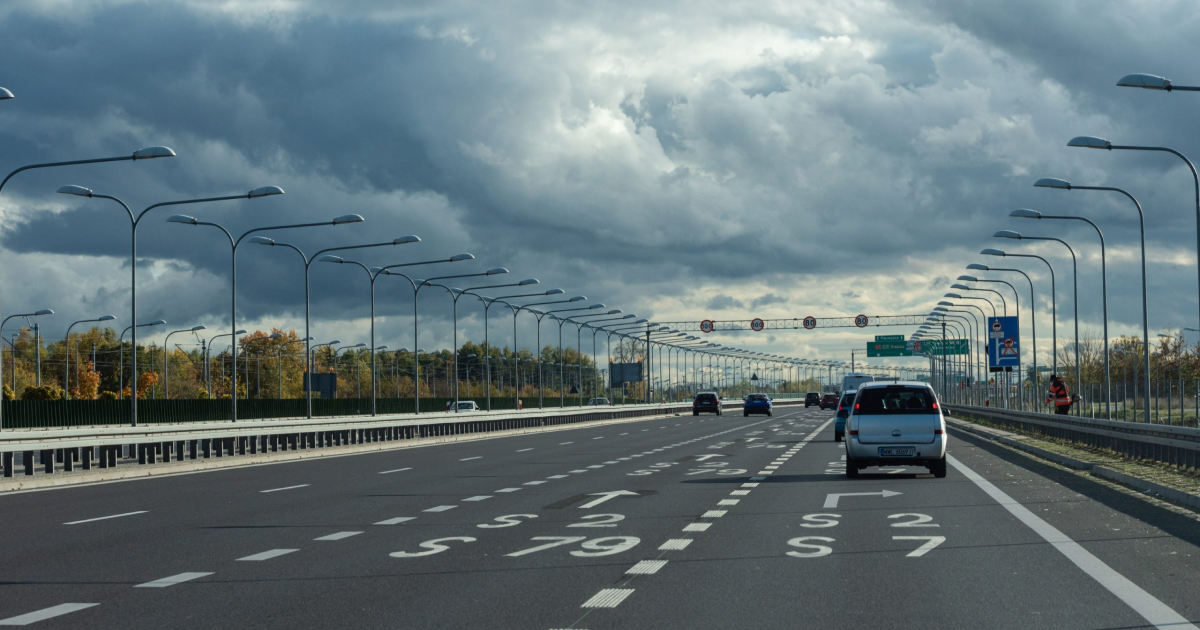
Posts Infrastructure cargo transportation 3898 16 November 2023
Prolonged blocking of the border will lead to increased costs of logistics and a decrease in the competitiveness of Ukrainian exports
On Monday, 6 November, Polish trucking companies started a blockade of truck traffic through the three largest checkpoints on the border with Ukraine – Korcheva-Krakivets, Grebenne-Rawa Ruska, Dorohusk-Yahodyn. During two days of the blockade, 20,000 vehicles were blocked from both sides of the Ukrainian-Polish border, including 1,700 trucks from the Polish side. Ukraine can only make limited compromises to fulfill the strikers’ demands, while the Poles are ready for a relatively long siege – blockade of border crossings for two months. At least the Polish carriers have official authorization to strike.
As before the war, steel is the largest item of Ukrainian exports to Poland. While an export corridor in the Black Sea was temporarily opened for grain, the products of Ukrainian steelmakers can only be exported from Ukraine by land. For less than a week of the blockade, it is too early to calculate the exact losses from idle time in queues at the border – some people have just formalized their cargo, others have not yet reached the border. But this damage is already there, and it is already being counted by both Ukrainian entrepreneurs and European companies working with the Ukrainian market.
Reasons for the blockade
After the outbreak of a full-scale war, checkpoints on the western border became the only transportation corridors for Ukrainian exporters to the EU markets, and further on to the entire world. To support the Ukrainian economy, the EU canceled permits for our carriers for a year. In the summer 2023, the EU extended this rule until June 2024, which affected the business of Polish carriers. Only one of the four Polish carrier associations is engaged in the blockade – the other three did not support it.
The blockade involves truck drivers, previously working in the markets of Belarus and Russia. They were deprived of the opportunity to work there because of the ban on the entry of Polish trucks in Belarus and Russia after a similar decision of Poland, which came into force on June 1, 2023. In other words, Ukraine directly has a very distant relation to the emergence of problems for this part of Polish carriers.
However, there are other reasons for the revolt of Polish carriers – the main one is the unpredictability and unpredictability of our cargo flows.
“Actually, “wild” Ukrainian market, which was manifested by «price slides» and disorderly investments by domestic businesses in the truck fleet in 2022-2023. Now these vehicles are in surplus and are replacing Polish trucks in Europe, which are forced to stand in queues. Naturally, the border’s capacity did not correspond to the cargo flow, which increased many times over with the outbreak of a full-scale war. This has led to queues in which both Ukrainian and Polish freight transport are idle,” – tells YuriН Shchuklin, owner of the Cargo+ company.
Large queues at the border were observed even before the beginning of the blockade. According to a survey conducted by the Federation of Employers of Ukraine (FEU), the average cargo delay for 40% of respondents was 5-10 days, for 53% of respondents – 10-15 days. Moreover, the situation has only worsened recently.
The situation is aggravated by the fact that in 2022 Poland ranked first in terms of bilateral trade in goods between Ukraine and European countries. It accounts for almost 25% of the total volume, which continued to grow despite the war.
Requirements of Polish carriers
The list of demands of Polish carriers blockading three border crossings looks quite impressive:
- Return to the system of cargo transportation permits for Ukrainian carriers (up to 200 thousand per year) that existed before the war.
- Introduction of separate queues for trucks from the EU in the «eCherga» system.
- Allocation of separate lanes for empty trucks.
- Prohibition of registration in Poland of companies with capital from outside the European Union.
- Access to the «Shlyakh» system.
- Toughening the rules of ECMT (European Conference of Ministers of Transport) transportation, allowing for multiple international transportation.
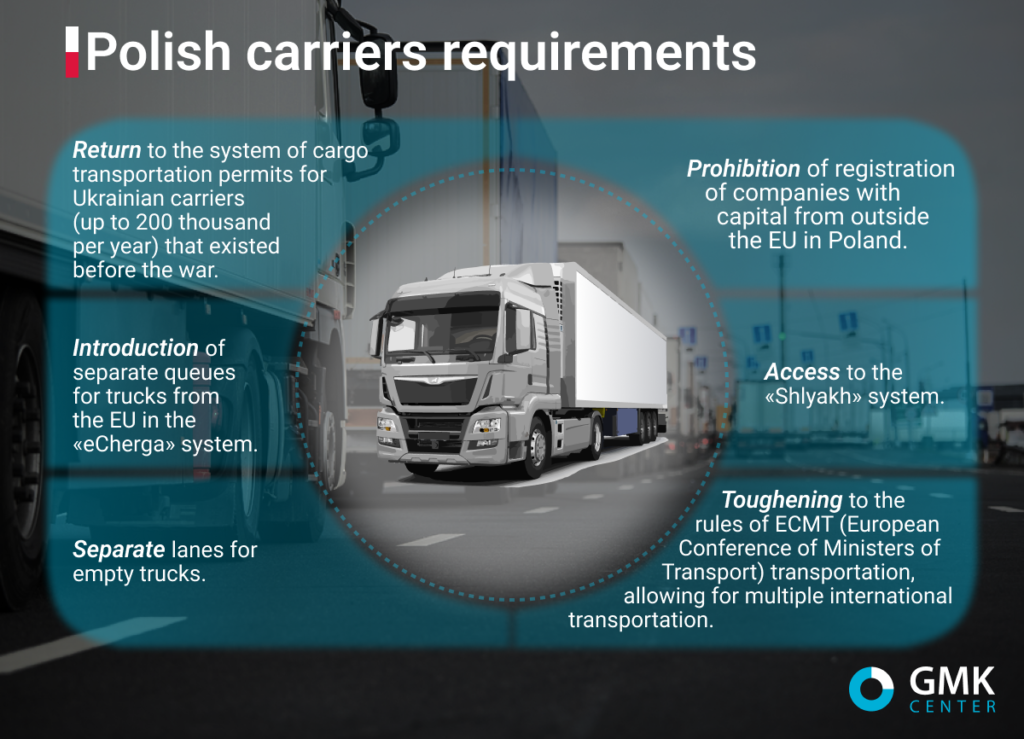
“One of the demands of Polish carriers – to provide a separate queue for cars with EU license plates in the Ukrainian system «eCherga». They should not stand idle in our queues and should be able to transport goods without unnecessary delays,” says Yuri Shchuklin.
Ukraine’s reaction
On the one hand, Ukraine has “heard” the requirements regarding the functioning of lanes for empty vans at the Yahodyn-Dorohusk checkpoint and the updating of the functionality of the «eCherga» system regarding the possibility of replacing the driver for empty trucks. In addition, Ukraine proposed to run empty transport through the Ugryniv – Dolgobychiv point, where there is an appropriate lane.
On the other hand, the Ukrainian authorities believe that most of the Polish demands are inherently unfeasible.
“The key thing the protesters are demanding is to return to the freight permit system. This is an issue that is not discussed at such meetings. And it is important for us: the «transportation visa-freeze» must continue and be prolonged. At least until our victory comes. The absurdity of the demand is that the Polish protesters are not addressing their government, but want Ukraine to address the EU about the permits. The protesters are not interested in other issues. We are trying to look for compromises to increase the throughput capacity and fulfill the memorandums already signed, but it is difficult. We proposed to the Polish authorities to launch lanes for empty trucks at the Ugrinov – Dolgobychiv and Grushev – Budomierz BCPs. We are waiting for a reply again,” stated Deputy Minister of Development, Communities and Infrastructure Sergiy Derkach.
Apparently, there will not be a quick solution to the situation that will suit everyone. Meanwhile, Polish carriers are threatening to keep the blockade for two months.
Meanwhile, the Union of Road Carriers of Slovakia (UNAS) is threatening to block Ukrainian carriers from crossing the border from their side. In this way, they are demanding that the European Commission return to issuing commercial transportation permits within the European Union.
According to Slovak media reports, there is already a significant accumulation of trucks traveling to Ukraine on Slovakia’s eastern border, particularly at the Vysne Nemecke-Uzhhorod border crossing.
Consequences of the blockade
The blocking of the border led to queues of 40 km on the Polish side in front of the blocked checkpoints.
As of now, the protesters have achieved the following:
- Huge damage to Ukrainian carriers and exporters.
- Risk of disruption of military and humanitarian supplies.
- Polish companies suffered losses.
- A humanitarian catastrophe on Polish territory, where thousands of cars are already parked at the entrance to Ukraine without access to everyday amenities.
According to Anatoliy Kinakh, president of the Ukrainian Union of Industrialists and Entrepreneurs (UUIE), the actions of Polish carriers harm not only Ukraine and our exports, but also Polish exporters supplying goods to Ukraine, as well as French, Latvian, German and other consumers of Ukrainian products, which cannot be delivered on time to EU trade networks under contracts.
After the beginning of the blockade of Polish carriers, German Spiegel wrote that several companies with German capital are thinking about withdrawing from Ukraine. Not because of Russian aggression, but because of the situation on the western border.
“During the week of cargo delay, one Ukrainian exporting company could not load more than a dozen orders totaling €500 thousand from European suppliers in time. Therefore, it is not clear who will benefit from such strikes,” – European Business Association (EBA) adds.
However, in the context of the war and the full scale of the problems caused by the hostilities, the blockade of important transportation routes is a sensitive blow, first and foremost, to our country – both to Ukrainian exporters and importers, who with great difficulty were able to establish new logistical routes after February 24. The consequence will be disruption of product delivery dates, violation of contractual obligations with partners, spoilage of products with limited shelf life and, as a consequence, direct financial and reputational losses.
“Their protest is a question of all business, both Ukrainian and European. Because many companies have their contracts, many of which are not fulfilled. Business suffers from this, the economy of both Ukraine and the EU suffers because of this blockade. In addition, we are starting to have humanitarian problems – some donors do not want to send humanitarian aid here, so that their drivers are not stuck in this blockade. So we explained to the protesters that this measure of yours is causing much more losses than you think. In their opinion, they simply do not allow Ukrainian carriers to drive. But such actions lead to much greater consequences, and we have told the Polish Government about this,” said Sergiy Derkach.
Solution methods
The blockade of Polish carriers violates existing international agreements, in particular between Ukraine and the European Union. On this basis, the Polish authorities should be questioned about compliance with international law.
Ukrainian business offers certain measures to improve the situation. If we combine business proposals to the Ukrainian authorities to reduce queues at the border, we will get the following list of measures:
- Modernization of existing and construction of new common checkpoints on the Ukrainian-Polish border.
- Convergence of customs procedures at Polish-Ukrainian control points and development of appropriate recommendations for changing customs legislation and practices of the customs departments of both countries. The ultimate goal is the introduction of joint control at checkpoints.
- Introduction of separate lanes for FEA subjects who have received AEO status, simplifications under the Convention on Joint Transit Procedure or other simplifications under the Customs Code of Ukraine.
An absurd situation has developed due to the blocking of the border by Polish carriers. For almost two years now, official Brussels has been helping Ukraine stabilize its state budget by providing loans and grants to cover the deficit from tax shortfalls related to the Russian occupation of Ukrainian territories. Month after month, billions from the West flow to Kiev, but now Ukraine’s economy, which itself is able to generate revenues and taxes despite the war, is blocked on its western border. If the blockage, as Polish carriers threaten, lasts up to two months, the economy of not only Ukraine but also the EU will receive a very strong “shake-up”, the losses from which are hard to even imagine.


